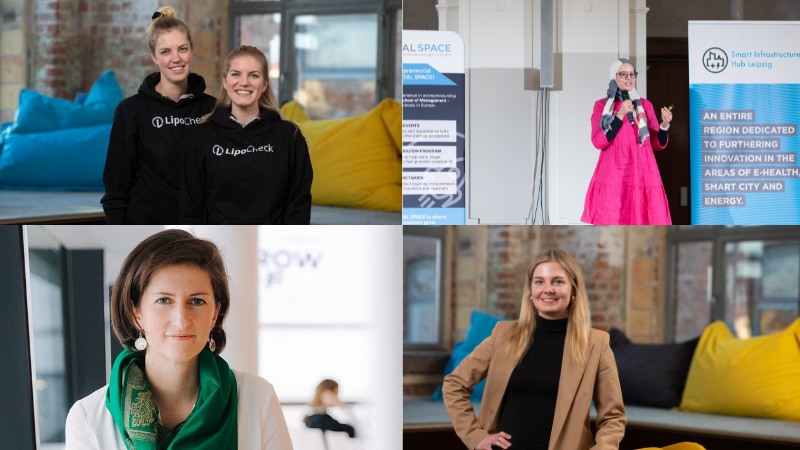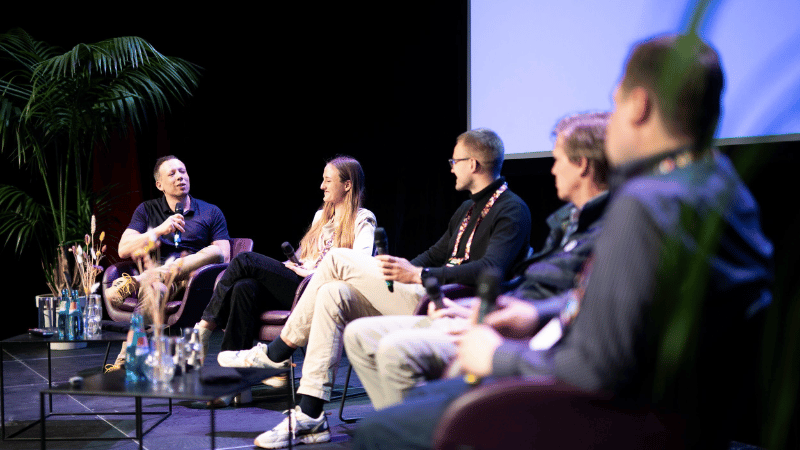In 2014, 27pilots founder Gregor Gimmy, while working at BMW's innovation strategy department, conceived an approach to enhance how BMW engaged with startups. He established specific processes, resources, and a new value system, leading to the creation of the BMW Startup Garage, the world's first official Venture Client Unit. In Venture Clienting, established companies actively engage with startups by becoming targeted clients. This involvement goes beyond mere financial support, it provides valuable feedback, expertise, and market access to startups in their early stages. In return, startups deliver innovative solutions and technologies that can be seamlessly integrated into the companies' operational processes. During a pilot project, the utility of the purchased technologies for the company is assessed over several weeks to months. Upon successful adoption, a long-term collaboration is sought, aiming to provide competitive advantages for both parties.
Just Another Term For Corporate Innovation?
Not quite. Venture Clienting can be considered as a subset of Corporate Innovation. While it involves companies acting as targeted clients for startups, integrating their technologies into their business processes, Corporate Innovation encompasses a broader process whereby companies develop new ideas, products, and business models to maintain competitiveness. Venture Clienting focuses on collaborating with startups to acquire innovative solutions, Corporate Innovation employs various approaches such as research and development, strategic partnerships, and internal innovation programs to nurture an innovative culture within the company. Ultimately, Venture Clienting is a more specific approach with an ability to enable companies to collaborate directly with startups, swiftly integrating innovative solutions without navigating the lengthy processes and bureaucratic hurdles associated with internal innovation programs. Through close collaboration with startups, companies gain agile access to new technologies and ideas, enhancing their flexibility and competitiveness.
Impact of Venture Clienting
Bosch has already generated at least €270 million in revenue through the influence of Venture Clienting, while the partnering startups yielded over €40 million. This was revealed in the GlassDollar study on the 'Impact of Venture Clienting', which provides insights based on collected data from 19,401 startups and 18,801 corporations worldwide. In total, over 66,000 Corporate-Startup Relationships were identified (as of January 2024). The study has showed that startups engaged in Venture Clienting relations have a significantly higher probability of securing VC investment or being acquired within ten years of founding compared to the average startup listed in Crunchbase. It was also found out that Corporate-Startup Partnering, particularly Venture Clienting, is more established than previously thought, showing a trend towards increased professionalization.
Why corporates should work with startups
Corporates collaborating with startups are known as venture clients. A venture client is a company that purchases and implements startup products to address business challenges, such as enhancing products or streamlining manufacturing processes. By partnering with startups, they can tap into innovative solutions and technologies that can enhance their products or services and keep them competitive in the market. Startups often operate with greater flexibility, allowing them to quickly respond to market demands and adapt to changing conditions. By collaborating with these agile entities, corporates can benefit from this flexibility and expedite the development and implementation of new ideas and solutions. Moreover, Venture Clienting helps to mitigate risks associated with traditional innovation methods. By testing and validating solutions in real-world settings before committing to long-term partnerships, organizations can minimize the potential for costly failures and ensure they are investing in technologies that align with their strategic objectives.
And What’s In It For The Startups?
By partnering with established corporates, startups gain invaluable market validation for their solutions. This real-world testing allows them to refine their products based on actual user feedback and market demand, significantly increasing their chances of success. Additionally, startups benefit from the vast resources and expertise of corporates, accessing critical knowledge, extensive networks, and funding opportunities. Moreover, collaboration with corporates provides startups with direct access to potential customers, accelerating customer acquisition and enabling faster market entry. The credibility and trust associated with corporate partnerships can also enhance the startups' reputation, making it easier to attract additional clients and investors.
Navigating Corporate-Startup Collaborations
Although Venture Clienting holds promise for corporates, it also poses challenges, particularly as they navigate unfamiliar terrain outside their core business realms. The SpinLab group supports corporate partners through innovation strategy consultation, global startup ecosystem scouting, and the organization of open innovation activities. We facilitate bilateral pilot projects between corporates and startups, providing comprehensive support for the entire innovation process.
One successful example project is the collaboration with our corporate partner Leipziger Stadtwerke and SpinLab alumni elena international. The Leipzig-based energy supplier is the first municipal company in Germany to use an innovative AI-supported software solution for planning renewable energy (RE) systems for commercial and large customers. The AI tool elenova developed by elena international, quickly creates complex energy concepts by grouping and visualizing data, filtering buildings by size, age, and material, bundling financial and energy indicators, and analyzing load profiles and peak loads. For Stadtwerke Leipzig's sales team, elenova plan emerged as an ideal solution. Manuel Clauß, from the key account management team, explains that the company regularly advises large customers on efficiency measures and the integration of renewable energies. Previously, they relied on self-developed Excel tools, spending extensive hours crunching data to create appropriate offers.
Learn more about our venture clienting services here.
The article was written in collaboration with Emelie Christiani.






/RootCamp_Logo-Ecosystem.png?width=200&name=RootCamp_Logo-Ecosystem.png)
/Bitroad_Logo-Ecosystem.png?width=200&name=Bitroad_Logo-Ecosystem.png)



/White%20Versions/stadt_leipzig_white.png?width=130&name=stadt_leipzig_white.png)
/lfca_white.png?width=119&name=lfca_white.png)

/White%20Versions/sachsen_signet_white.png?width=65&height=79&name=sachsen_signet_white.png)